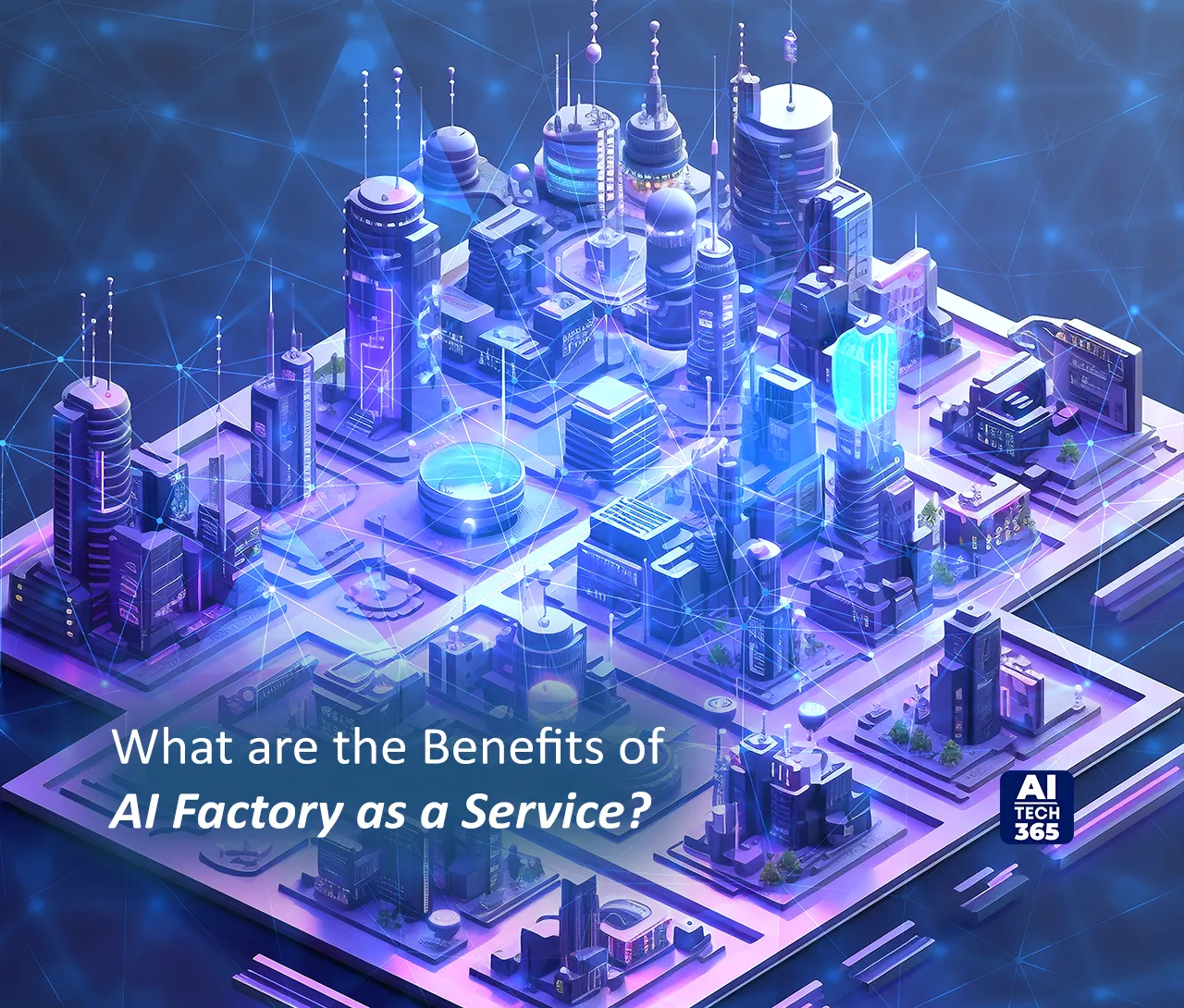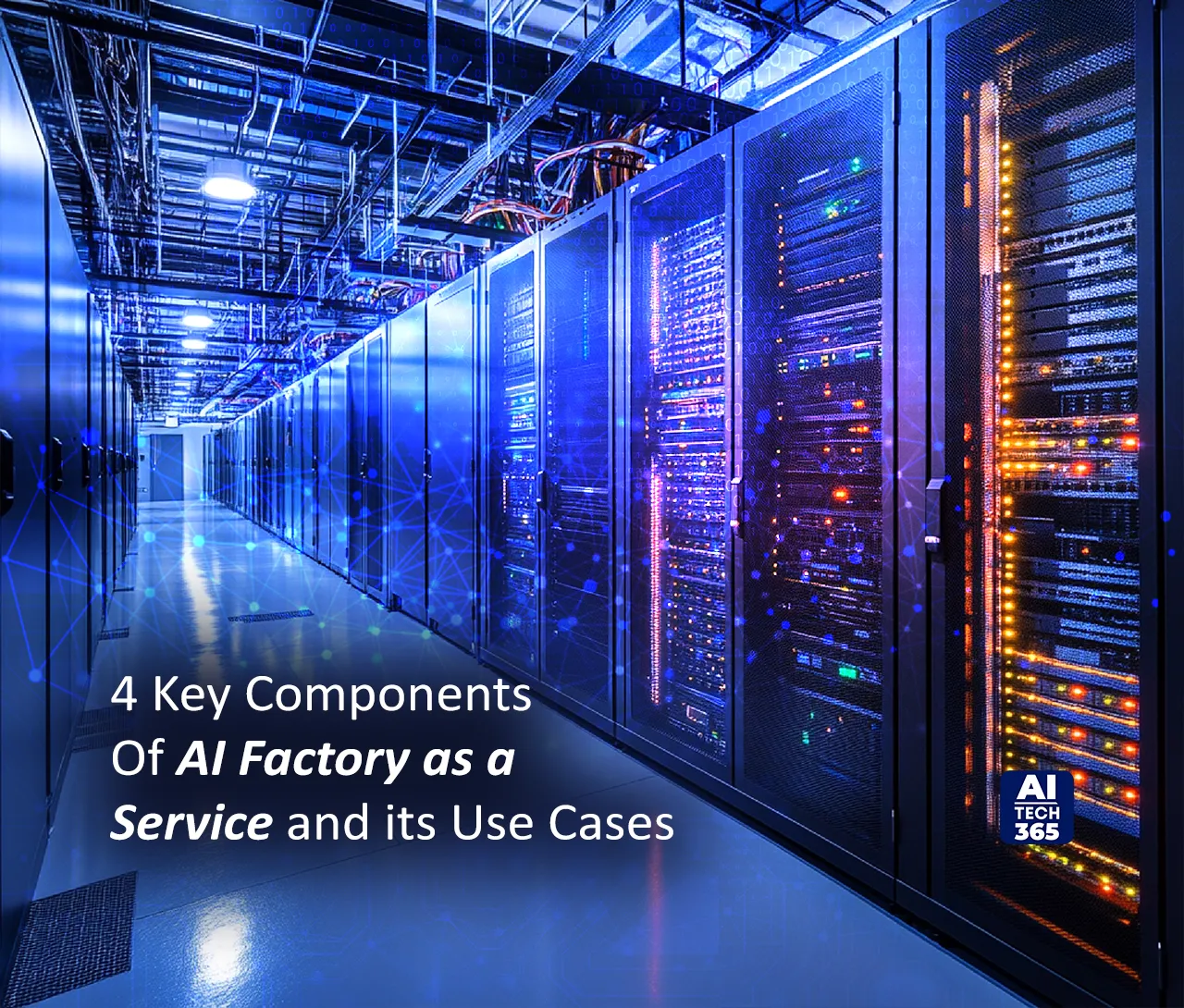Recently Deloitte introduced a robust generative solution referred to as AI Factory as a Service. Deloitte has developed the solution in collaboration with NVIDIA and Oracle. When any new out-of-the-box service emerges in the market, there will be hype for that type of IT solution. As there is a significant demand for AI products in the market; AI factory as a service is also gaining popularity. In this blog, let us have a look at definitions of AI factory, what AI factory as a service is, its key components, benefits, and use cases.
What is an AI Factory?
AI factory is a data center, which is a physical infrastructure leveraged to generate artificial intelligence itself from the data sets and models. Earlier, AI factories could be used to refer to an infrastructure that is required to develop and train next-generation AI models including Claude’s Anthropic, Google Gemini, and OpenAI’s ChatGPT-4o. Today AI factory is used to describe the product of inferencing. It is the forecasts or outcomes generated by processing data through a live and already trained AI model.
What is AI Factory as a Service?
AI factory as a service offers clients access to subject matter experts, product managers, industry veterans, and AI architects throughout the vast ecosystem. It is an effective service model that helps enterprises to meet the ever-evolving demand for highly skilled technical professionals. AI factory as a service helps businesses with experts to overlook their AI development programs, set governance policies, and drive AI enablement to pave a quick and efficient path to generate value.
There are immense benefits that AI factories offer which lure the attention of the masses.
What are the Benefits of AI Factory as a Service?
Following are some of the advantages that AI Factory as a Service offers, which has increased its popularity in the market:
1. Minimizing Cost
One of the biggest benefits of AI factory as a service is that it enables minimizing the design, development, and deployment costs of any AI solution. More importantly, businesses will only end up paying what they require.
2. Speedy Development
Partnering with an AI factory as a service provider will not only be cost-effective but also will reduce the time spent on AI projects.
3. Easy to Implement
Internal IT teams do not even have to learn how to code AI factory solutions. The service provider will do the design, development, deployment, and maintenance of the AI solutions. Collaboration with a vendor will eliminate the need to hire skilled talent and develop a complex infrastructure.
4. Personalization
Whatever the goal of the factory unit is, AI factory as a service will help enterprises to refine the solution that fits their organization’s, data or project needs.
5. Scalability
Various development teams usually tend to forget to develop a scalable solution during the design phase. A third-party vendor will not miss out on integrating crucial features in the design to develop a robust AI factory solution that caters to unique business needs. This approach helps factories to grow and starts to demand more from the model once it is ready to deliver.
Despite these benefits, AI factory models are still in their infancy, which makes their widespread adoption more challenging.
There are a few successful use cases of this service model, once there are more advancements in the sector the popularity and applications of AI factories as a service will improve significantly. This service model has a few key components that decision-makers should consider before partnering with a service provider,
Also Read: Top 6 Benefits of Integrating AI Servers
4 Key Components Of AI Factory as a Service and its Use Cases
AI factory is an organized framework that assists organizations in reaping the benefits of AI’s true potential to drive informed decision-making, embrace innovation, and get a competitive edge. Here are the four key components of AI factory as a service.
1. Data Pipeline
The data pipeline forms the foundation system of collecting, cleaning, integrating, and safeguarding data to ensure its availability for AI technologies. It is also referred to as Datafication. This process converts raw data into a structured form to make it usable for AI models. However, the accuracy and dependability of AI factory models rely heavily on the quality of data. Hence, it is crucial to have clean and well-structured data to make informed decisions.
Use Cases
Amazon leverages cutting-edge data pipelines to evaluate customer data including browsing history and purchase patterns. A structured and clean data set enables AI factory models to make accurate product recommendations based on the user’s preferences.
A well-defined AI pipeline is crucial for developing scalable AI models with robust capabilities and fostering informed decision-making. Without a structured data pipeline, even the next-generation AI tools will not be impactful because of the poor data quality fed to train the AI models.
2. Development of Algorithm
Once the data sets are ready, the following steps include the development of algorithms that evaluate the data and offer valuable insights. AI algorithms enable factories to make data-driven decisions by processing multiple data sets to forecast outcomes and trends. It is crucial for the decision-makers to select the right AI algorithm that aligns with their business needs and the nature of the data sets. The success of AI factory models will also heavily depend on the selection and development of the right ML algorithms that cater to particular business needs and objectives.
Use case
Tesla uses a robust machine learning algorithm to capture and process the data gathered from various radar systems, sensors, and cameras installed in their autonomous vehicles. These ML models are designed to make real-time forecasts like braking and steering decisions. It helps improve the safety of the vehicle and enhances the driving efficiency.
3. Software Infrastructure
The software infrastructure encompasses the entire AI factory solution by offering the architecture required to assist the data pipeline and algorithmic processes. It includes the networks, hardware, and software solutions that are required to store, process, and migrate data. Infrastructure is the backbone of AI factory models that ensure scalability and offer seamless AI operations. Businesses need to invest in a scalable and efficient AI factory software infrastructure to ensure the streamlined working of AI models while handling huge data sets and complex computations.
Use Case
Netflix in its nascent stages faced a few bottlenecks with its recommendation systems because of a lack of required infrastructure. In order to overcome this bottleneck, Netflix invested substantially in an efficient cloud-based infrastructure, enabling it to process massive data sets seamlessly and provide bespoke content recommendations. This move helped Netflix to get a competitive edge by enhancing the user experience.
4. Experimentation Platform
Factory owners can leverage an experimentation platform from an AI factory as a service provider to execute, evaluate, refine, and enhance AI models. It is an effective approach for organizations to test various hypotheses and outcomes, to check if their forecast matches with the results intended. These experimentation platforms are necessary for adopting innovative solutions in the factories and enhancing their performance over time.
Decision makers might have the following questions while exploring AI as a service model:
Will the new pricing algorithm assist in increasing the sales conversion rate?
Will the machine-learning algorithm be effective in predicting the customer churn rate?
Will a new AI-power process improve the overall efficiency of the operation?
Leveraging an experimentation platform can assist enterprises to constantly adjust their AI models to capture market opportunities and stay competitive. Experimentation platforms of AI as a service vendor allow businesses to evaluate AI predictions, try new approaches, and assist with constant enhancements in AI strategies.
In a Nutshell
Data pipeline, algorithm development, software infrastructure, and experimentation platform are the key components of an AI factory as a service. These components are crucial to developing an efficient, innovative, and scalable AI system. AI factory as a service vendor allows enterprises to transform raw data into actionable insights to make data-driven decisions and get a competitive edge. Additionally, these service providers help factories to design, develop, and deploy AI models more effectively, cost-efficiently, and quickly.


